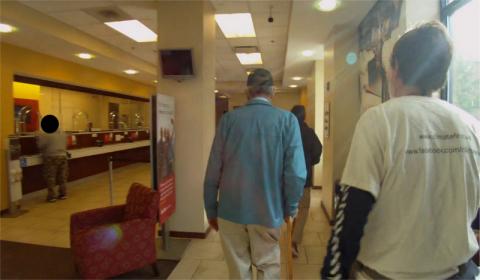Climate First! protests at Wells Fargo branch against Keystone XL stake
![]() Video from the Wells Fargo protest
Video from the Wells Fargo protest
On the 28th of October, Climate First! showed up in front of the Wells Fargo branch near Howard University, which they reported is the last Wells Fargo branch in DC to be open on Saturdays. Activists were there to protest the bank's role in funding the proposed Keystone XL tar sands pipeline, which TransCanada will announce in December whether they still plan to go forward with or not.
Wells Fargo is one of 21 banks that collectively provide $5 billion in revolving credit for TransCanada as a whole, and along with Citibank went so far as to recommit to this investment while the massive public fight over the Dakota Access Pipeline (which they also helped fund) was raging. Wells Fargo is also infamous for funding private prisons, and even for opening fake accounts in customer's names and setting up fake auto insurance policies that among other things led to many cars being reposessed.
If Wells Fargo dumps the Keystone XL between now and the December decision by TransCanada on building the pipeline or not, that could be the nail in the entire project's coffin. With as many pipelines as TransCanada owns and operates, the loss of even 5% of their entire line of credit could force them to reduce "capital expenditures" such as new construction by an amount possibly exceeding the entire cost of any one pipeline. With three years of oil prices insufficient to pay for tar sands refining, a replacement for Wells Fargo would be difficult to find.
Already many banks (such as ING) have cleared their portfolios of investments in tar sands, due in part to public pressure and in part due to the past three years of oil prices in the $50 a barrel range when it takes $70 a barrel for tar sands (and thus the Keystone XL) to turn a profit. For Wells Fargo not to follow ING Bank's lead is not only to show reckless disregard for climate science but also to show reckless disregard for the safety of their depositors' money. History shows that a previous oil price meltdown was responsible for the collapse of the Texas savings and loan industry in 1986, forcing a massive taxpayer-funded bailout of the entire industry to keep depositors from losing their funds.



